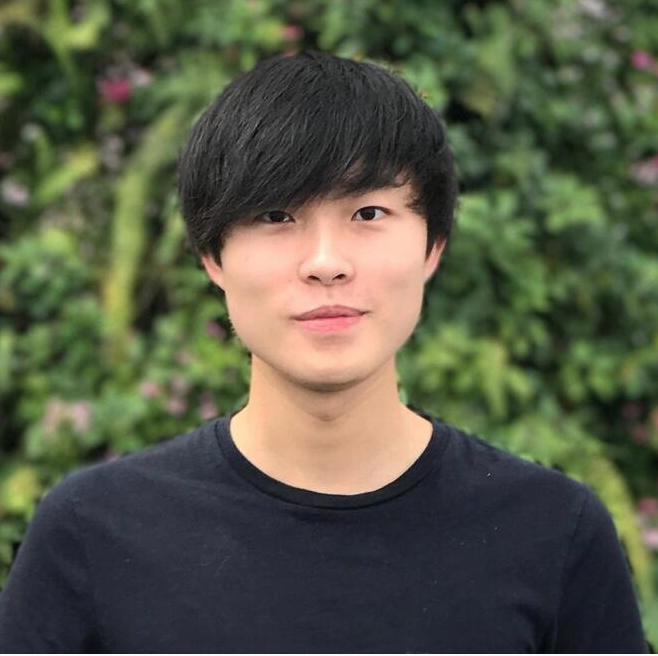On 29 July, Hong Kong police arrested four members of defunct pro-independence group “Studentlocalism” on suspicion of inciting secession under the controversial National Security Law, imposed last month by Beijing. The three men and one woman —aged 16 to 21 — are the first political figures to be arrested under the law, indicating that the police intend to exercise their new powers aggressively.
WHO IS TONY CHUNG AND WHO WERE STUDENTLOCALISM?
In Hong Kong, localism is a broad movement to preserve the city’s political autonomy and local culture as distinct from mainland China. While some localist groups, like the former political party Demosisto, appeal for a greater say in the election of the city’s Chief Executive (who is currently prescreened by Beijing) or resist laws that erode the Cantonese language and culture, other localists advocate for Hong Kong independence from China.
In April 2016, a sixteen-year-old Tony Chung and three schoolmates set up Studentlocalism, a localist group promoting Hong Kong independence on school campuses. Within four months, the group had “28 localist concern groups… at schools across the city” and attracted the condemnation of C.Y. Leung, the then head of the city’s government.
The group survived the purge of localist groups that followed the 2016 “Fishball Revolution”, while other more established groups were either banned or had their election candidates disqualified, but continued to be subjected to police intimidation, surveillance, and criminal charges. However, hours ahead of the National Security Law coming into force, the group disbanded its Hong Kong-based group and said it would continue its work from overseas in Taiwan, Australia, and the U.S.
WHEN AND WHY WERE ITS MEMBERS ARRESTED?
According to Chung, plainclothes officers grabbed him while he was going to Mong Gok Police Station in relationship to another case. The officers forced Chung to unlock his mobile phone before presenting a warrant to search his apartment. During the four-hour search, officers seized Chung’s entry permit for Taiwan, school reports, and other personal items unrelated to national security, said Chung. Finally, the officers detained him and his girlfriend, along with three other former members of Studentlocalism) for 48 hours before being released without charge.
Chung says he was forced to give a saliva sample and sign a document acknowledging that he had been accused of committing some “serious criminal offences”, despite not being charged. He was also ordered to delete several social media posts within 72 hours and was banned from leaving the country for the next 6 months.
Senior superintendent Li Kwai-wah from the police’s newly established National Security Unit, tasked with policing the National Security Law, told a press conference that the four were arrested because "the group recently announced on social media to set up [sic] an organisation that advocates Hong Kong independence", which is prohibited under Article 20 and 21 of the National Security Law. It is believed that the organisation in question is the Initiative Independence Party, which was founded by former Studentlocalism members overseas.
ARTICLE 20 & 21 OF THE NATIONAL SECURITY LAW
Under Article 20, a person is guilty of an offence if he or she “organises, plans, commits or participates” in an act “with a view to committing secession or undermining national unification”. The maximum penalty under Article 20 is life imprisonment.
Under Article 21, a person is guilty of an offence if he or she “incites, assists in, [or] abets” someone committing an Article 20 offence. This includes providing financial assistance or property. The maximum penalty under Article 21 is 10 years. The wording of Article 21 is ambiguous enough that a person donating or even renting out property to a political groups who fall foul of Article 20 may find themselves guilty of an offence under Article 21.
A CLEAR VIOLATION OF DOMESTIC AND INTERNATIONAL HUMAN RIGHTS LAW
It was not clear from the wording of Article 20 alone whether the prohibition on “secessionism” applied only to violent attempts to separate Hong Kong from China or to peaceful advocacy as well. There is no evidence that Studentlocalism, Initiative Independence Party, or any of the four arrested have planned or participated in any violent acts. Their arrest indicates that the police intend to apply Article 20 to peaceful advocates.
This is a violation of both Hong Kong’s domestic law and its international human rights obligations. Article 27 of the Basic Law—Hong Kong’s constitution—and Article 16 of the Bill of Rights guarantee freedom of speech and freedom of expression respectively. Further, Article 39 of the Basic Law states that the International Covenant on Civil & Political Rights (“ICCR”) shall apply to Hong Kong: Article 19 of the ICCR also guarantees that citizens should “have the right to hold opinions without interference” and “have the right to express their opinions”. Although Article 19 is subject to restrictions to protect “the rights or reputations of others” and “for the protection of national security”, the ICCR requires such restrictions to be “necessary”. The Court of Final Appeal—Hong Kong’s highest court—has held that any restriction on freedom of expression should be “proportionate to the aims sought to be achieved”[1]. It is difficult to see how a Facebook message warrants the invoking of Article 20 and 21, the confiscation of travel documents, and detention without charge.
[1] HKSAR v Ng Kung Siu and Another (1999) 2 HKCFAR 442
Samuel is a trainee solicitor and postgraduate at Cardiff University. He is active in several U.K.-based organisations campaigning on behalf of Hong Kong and BNOs. His research interests include transitional justice and the rule of law.
Cheuk studied law at Cardiff University. He is currently pursuing postgraduate legal studies. His research interests are human rights and the rule of law in Hong Kong.


